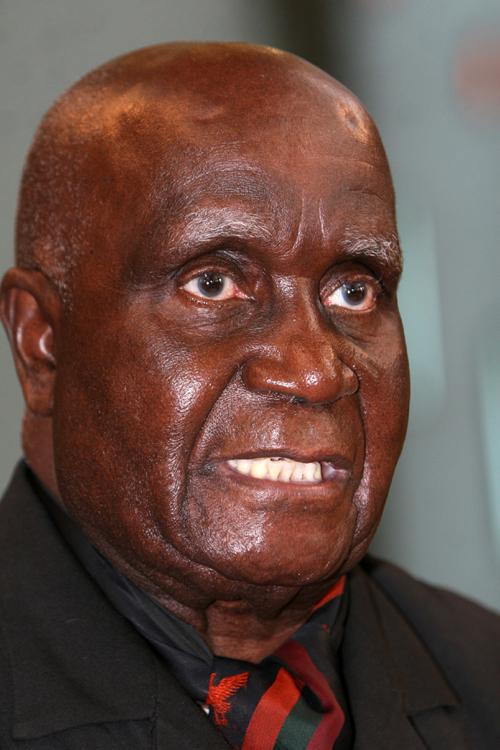Dr. Kenneth Kaunda,Zambia’s first president and one of the last of the generation of African leaders who fought colonialism, has died aged 97.Kaunda was admitted to a military hospital in the capital, Lusaka,in June suffering from pneumonia. His aides said he did not have Covid-19.Kenneth David Kaunda,was a Zambian politician who served as the first president of Zambia from 1964 to 1991. He was at the forefront of the struggle for independence from British rule.
He distinguished himself in Zambia’s own liberation from colonialism and was instrumental in providing a home for all the liberation movements of Southern Africa. In hosting the African National Congress (ANC) and other liberation movements he defied the powers that be including the brutal Apartheid regime in South Africa and its allies in the West in particular the USA and UK. Seen in the light of the Cold War his efforts were indeed heroic and gallant. His commitment towards the liberation of Africa from its colonial vestiges remained unswerving even in the face of threats and bullying from these powers. The Nelson Mandela Foundation said Kaunda contribution to the struggle against colonialism and apartheid would not be forgotten.
It is no exaggeration to regard the late President Kaunda as the father of the liberation movement in Southern Africa and the Zambian nation as the true heroe and liberator of our sub-continent. He will not only be remembered as one of the last of the generation of African leaders who fought colonialism but also for his love of sport and music. His support for the national team helped them develop into being a force to be reckoned with on the continent and with that success the side soon became know as the ‘KK11’ in his honour.
Early on in his political career he realised the football was a tool that could aid his work toward creating a country devoid of tribal politics and to promote his constant theme of ‘One Zambia. One Nation.’ He succeeded. His passion for football also saw his first cabinet frequently out on the football pitch playing in matches that gave them the opportunity to engage the public in a light-hearted manner. He saw it as a way of showing that they were still in touch with the community while Kaunda himself surfaced at other matches as a referee. Kaunda was ever-present for high-profile matches when the national team played, and frequently for local cup competitions and Independence Day celebratory matches. He strategically chose encounters that would have huge audiences and maximum impact on the public if the team won.
Yet, he also genuinely loved the game as could be seen by him going out of his way to make sure that the national team had equipment and financial support to fulfil its programmes, even when resources had become scarce as the economy nose div ed. Another tribute came from Kalusha Bwalya, former captain of the Zambian national football team, who said Kaunda had made “an immense impact”.
Although Zambia’s copper-based economy fared badly under his long stewardship, Kaunda will be remembered more for his role as an anti-colonial fighter who stood up to white minority rule in Southern African countries such as Angola, Mozambique, Namibia, South Africa and Rhodesia, now Zimbabwe.
The youngest of eight children, Kaunda lost his father when he was eight years old. His mother was a teacher – a rare profession for Zambian women in those days. He started his political career as the organising secretary of the Northern Rhodesian African National Congress (NRANC) in the Northern Province of Zambia. But in 1958, he broke from the NRANC to form the Zambian African National Congress (ZANC). The colonial authorities banned it a year later, and Kaunda was imprisoned in Lusaka for nine months.ZANC became the United Party for National Development (UNIP) in 1959.The following year, Kaunda was released from prison and elected president of the nationalist, left-of-centre UNIP. He then started organising civil disobedience known as the Cha-cha-cha campaign.
It was the philosophy of Mahatma Gandhi that made Kaunda committed to non-violent principles. Kaunda was not ashamed to weep in public and had a unique speaking style, emphasising key thoughts by repeating whole sentences, his trademark white handkerchief in his left hand.He espoused an ideology of “humanism” mixing Christian ethics, traditional African values and socialistic principles.Using his rhetorical skills to appeal to the public,Kaunda won independence for his nation without resorting to violence in 1964. As UNIP president, he ruled Zambia for 27 years.
Kaunda had continued to engage in national politics and in 1996 tried to stand for the presidency. However, the Chiluba government changed the constitution so that anyone whose parents came from outside the country was deemed a foreigner and could therefore not run for office. Chiluba later attempted to deport Kaunda alleging that he was a Malawian. In 1997, Chiluba threw Kaunda in jail on Christmas Day for allegedly being involved in a foiled coup attempt. In 1999,during Chiluba’s rule, he was declared stateless by a Zambian High Court, but he challenged this decision in the Supreme Court of Zambia, which declared him to be a Zambian citizen the following year.
As head of the left-leaning United National Independence Party (UNIP), Kaunda then led the country through decades of one-party rule. He stepped down after losing multi-party elections in 1991.In later life Kaunda turned his attention to the fight against HIV after one of his sons, Masuzyo, died from an Aids-related disease. “We fought colonialism. We must now use the same zeal to fight Aids, which threatens to wipe out Africa,” he told Reuters in 2002.Throughout the African continent, many streets, buildings and airports are named after him. And even in old age, he repeatedly raised his voice in public against perceived injustices as well as the oppression of minorities.
Author: Gbenga Teejay Okunlola
London, UK
teejayok@gmail.com

